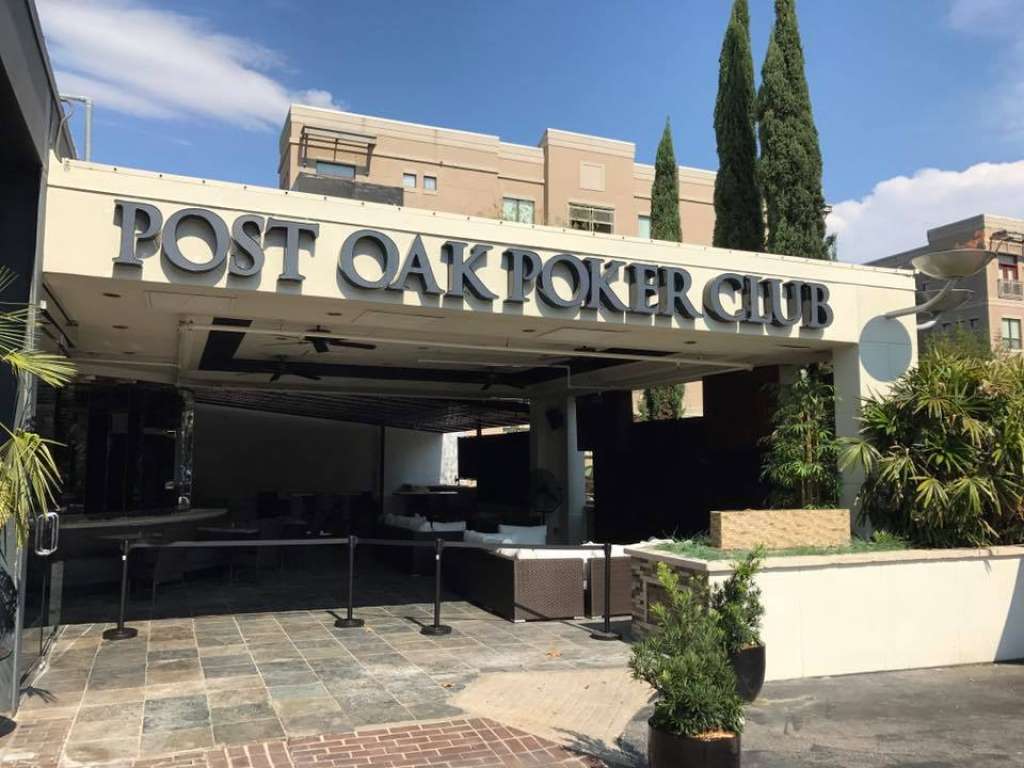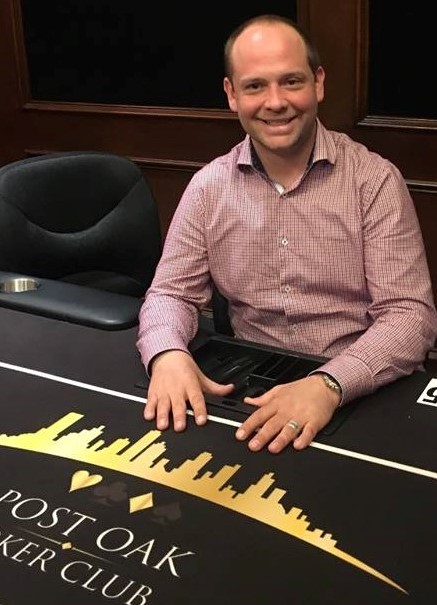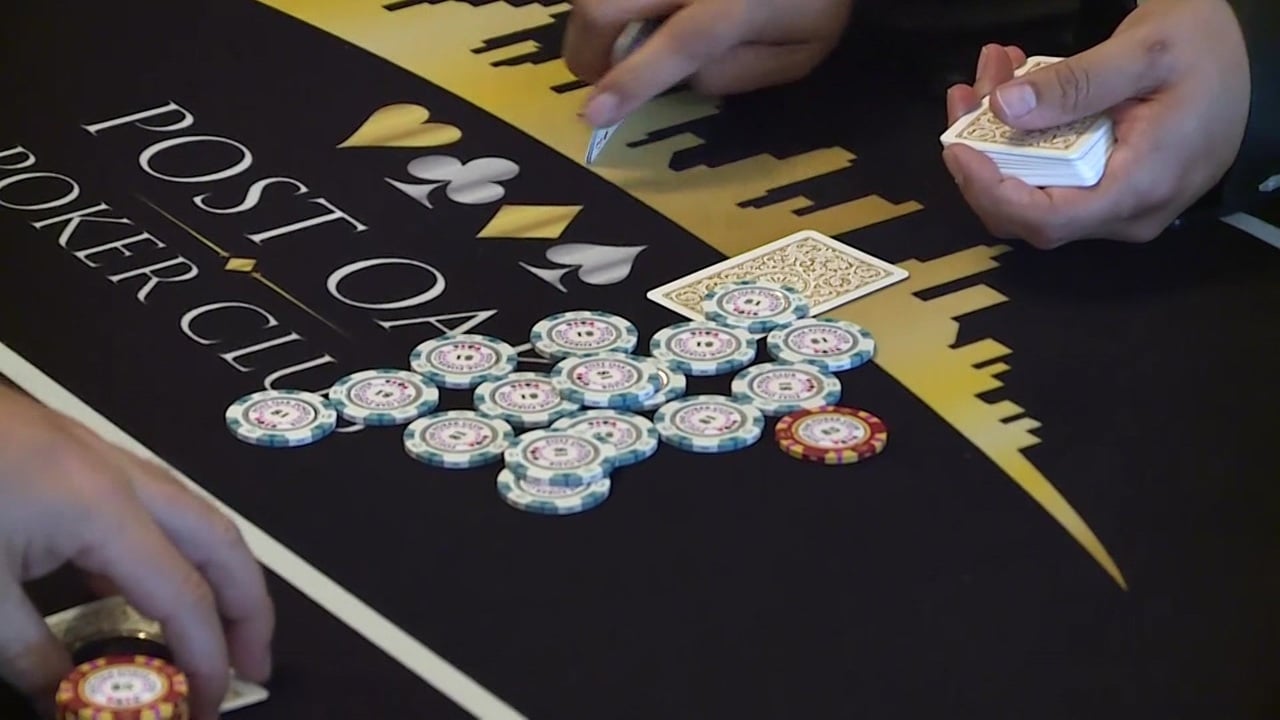The Texas-based Post Oak Poker Club (POPC) in Houston is one of many new card rooms in the Lone Star State that some perceive to be operating illegally. But club owner Daniel Kebort insists that’s not the case, and told CardsChat his private membership club is completely legit.

Respect the Game and Community
Kebort — who previously ran a corporate catering company — doesn’t mess around when it comes to running his business. He has a passion for the game of poker, having played it for many years himself, and a respect for the neighborhood in which his club is situated, which he refers to as the “Beverly Hills of Houston” for its high-end restaurants and shops.

Post Oak Poker Club is located in the same spot as the original Tony’s, a legendary upscale Italian restaurant that attracted celebrities and even former President George H.W. Bush, who lived nearby and was a regular customer.
“Tony’s Restaurant has a history in this community,” Kebort said. “So, we have a responsibility to the neighborhood we’re in to maintain high standards. Part of that is we don’t stay open 24 hours a day. The other part is I don’t want our players coming in looking like they just rolled out of bed.”
The private social club enforces a casual dress code, which means players can’t wear flip flops or a hat put on backwards.
The 15-table card room opened in the summer of 2017 and has quickly become one of the city’s top places to play. Kebort says business is booming and the room often has “nine or 10” games going on any given night.
Beginning on July 28, POPC will host the Lone Star State Poker Championship, an event he’s quite proud of pulling off.
“This is really big for our club. We wanted to become the place people go to cure their WSOP hangover,” Kebort said chuckling.
The owner said his card room is partnering with the nearby Hilton Post Oak Galleria to offer special room rates to players during the event.
Business is booming. Poker players appear to enjoy the card room. But there’s another side to this type of business in Texas that frustrates card room owners like Kebort.
Murky Laws
Texas law on casino gambling is clear: brick-and-mortar casinos are illegal anywhere, except on Indian reservations. But the social gambling law is so vague that even politicians — including Houston City Councilman Greg Travis — admit it’s unclear if private membership clubs, such as Post Oak, are operating legally or not.
There are three parameters a card room must meet to comply with the law:
- Games must be held in a private place
- No economic benefit, aside from winnings themselves, can come from games (if that one confuses you, keep reading)
- All players must be given equal opportunity to win
The first part is clear in stating that the establishment hosting the card game must be a private place, but what is a bit confusing even to lawmakers is if these card rooms are technically “private.”
Post Oak, for example, requires all players to pay a membership fee and Kebort’s club reserves the right to deny anyone a membership for any reason. He says this business model satisfies the “private place” requirement, legally.
The third part isn’t vague in the slightest. If the house is spreading rigged poker games, the card room is operating illegally.
But it’s that second parameter that is causing politicians, poker players, and card room owners, to question their reading comprehension skills. Under Chapter 47 of the Texas Penal Code, no person involved in a poker game can “receive any economic benefit other than personal winnings.”
What Does it Even Mean?
Those who believe that Texas card rooms are operating illegally focus on the term “economic benefit,” claiming the clubs are generating revenue from the games and are, therefore, in violation of the law. But the term hasn’t been defined by state law, and that’s what is causing the varying viewpoints.
“There’s a lot of confusion over how the term should be defined,” Kebort said. “But I’m in constant contact with local authorities, advising them on what we do and they have yet to advise that we’ve broken any laws.”
So, how does the court define “economic benefit” in Texas? Does it mean a private club that offers poker games can’t charge membership fees and must operate as a non-profit? That will be up to Texas Attorney General Ken Paxton — who is scheduled to give an opinion on this issue in July — to conclude.
Finding Legal Loopholes
To continue operating within the law — which even Kebort admits is confusing — Post Oak doesn’t take out a rake in cash games, as doing so would be undeniably illegal. It’s also unlawful for dealers and cocktail waitresses to receive tips from the value at risk: meaning chips on the table being used to gamble.
“Our dealers make a good hourly wage, but they still receive tips. But they don’t receive tips from the value at risk. Instead, the players pay them with cash, not chips. The same goes for our cocktail waitresses. Cash doesn’t play in our games.”
The chips in play cannot be used to tip a dealer or waitperson. But a player has a right to pull out cash and ship a tip. Since there is no transfer of money from the “value at risk” to any staff member from a player, Kebort — who’s has spent countless hours researching the social gambling laws — believes this is a legal practice.
Haters Gonna Hate
The Texas poker club community has its detractors. Stop Illegal Gambling Houston, which doesn’t appear to have much of a following based on it’s double-digit Twitter following, is a website that is fighting against private social poker rooms in the Lone Star State.
At first glance, the website looks professional, and it’s clear whoever runs it feels strongly about their position, but Kebort doesn’t take them seriously.
“Let me just say that there is no opposition organization,” he said. “I’m familiar with this Stop Illegal Gambling site, but they have no real influence here.”
There are no individual names attached to the anti-poker website, and a WHOIS search indicated the site was registered to a private owner. I asked Kebort if he knows who that owner might be.
“I’m not even sure, but we are certain it’s someone who is connected to the Houston poker scene. Maybe it’s someone who really hates me for some reason,” he theorized.
Kebort doesn’t fear the cops knocking on his door because, he says, he knows he’s running a legit business. Still, he admits that dealing with all legal loopholes can be challenging, at best.
“If we want to grow the sport of poker, then we need to get over this petty stuff and give everyone the tools to grow the sport,” Kebort stated.
Far Cry from a Vegas Poker Room
Post Oak — and the other card rooms in Texas — operate differently, for legal reasons, than brick-and-mortar casinos.

Kebort’s club doesn’t charge a rake, but requires players to pay an hourly “seat fee” and additional membership dues for access to the club.
Some private card clubs sell liquor, but Post Oak has a B.Y.O.B. policy.
“We don’t sell alcohol because we haven’t applied for a liquor license,” Kebort advises. “Instead, we have a B.Y.O.B. bar where players pay a $5 fee to store their drinks. The waitresses will bring their drinks when they order them.”
He isn’t opposed to alcohol, but doesn’t want to enable poker players who might get drunk and start bothering other patrons. Post Oak does have a full food menu with salads, sandwiches, Asian dishes, appetizers, desserts, and, of course, a 12-ounce ribeye steak: it is Texas, after all.
The Southern Texas poker scene is rapidly growing. Card rooms such as Post Oak are finally giving area players a quality place to play cards. But the frustrating legal issues may never disappear.


